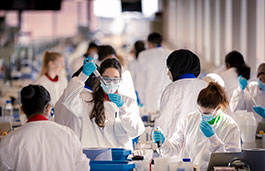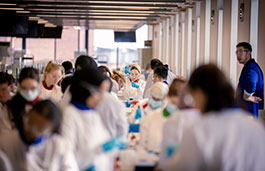Search
Antimicrobial Resistance MSc/PGCert
Study level: Postgraduate
These courses aim to produce, skilled practitioners, researchers, and change-makers to lead the fight against antimicrobial resistance (AMR) and influence strategies in infection control to improve patient outcomes and global health.
Year of entry
2024-25
Location
Coventry University (Coventry)
Study mode
Full-time
Duration
1 year full-time
4 months full-time (PGCert)
20 months full-time with professional experience
Course code
HLST286 (MSc)
HLST287 (MSc with prof experience)
HLST288 (PGCert)
Start date
September 2024
May 2025
Course overview
These courses aim to produce, skilled practitioners, researchers and change-makers to lead the fight against antimicrobial resistance (AMR) and influence strategies in infection control to improve patient outcomes and global health.
The World Health Organisation (WHO) estimates that failure to address AMR means that by 2050 the global burden may reach 350 million deaths a year. Consequently, there is an urgent need for specific training and development of healthcare postgraduates and professionals in how to tackle AMR to prevent cross-infection and outbreaks, monitor AMR and increase public awareness.
These courses aim to:
- Develop your in-depth awareness and training in global infection prevention and control practice and antimicrobial stewardship; antimicrobial resistance mechanisms; novel antimicrobial developments; and research into how AMR arises and spreads
- Offer rigorous training and practice in the research, analytical, evaluative and presentation skills valued in an independent professional laboratory scientist specialising in the epidemiology and analysis of antimicrobial resistance.
- Allow you to develop creativity, leadership and management and to practise and enhance a range of transferrable skills to enhance employability, including communication skills; independence; digital competence; teamworking; organisation; time-management; problem-solving; evaluation and implementation of infection control and antimicrobial stewardship strategies; professionalism; reflective practice; global perspective; leadership; conflict resolution; adaptability; and interpersonal skills.
Rated Gold Overall
Teaching Excellence Framework (TEF) 20235 QS Stars for Teaching and Facilities
QS Stars University RatingsTop 5 Student City in England (Coventry)
QS Best Student Cities Index 2025Why you should study this course
These courses provide the relevant knowledge and skills to enable further focus and career progression within the field of AMR. As a result, they are aimed at both UK and overseas bioscience graduates wishing to continue their studies, specialising in AMR mechanisms, policies and procedures, research and influencing public behaviour. They are also relevant for practising healthcare professionals wishing to specialise in AMR management.
You’ll be taught by an experienced teaching team, some of whom have worked in NHS laboratories as scientists or doctors (staff may be subject to change). They can bring their professional and research expertise into their teaching through case studies as the basis for problem-based learning activities.
There is a focus on developing laboratory and other scientific skills, giving you the opportunity to learn key microbiological and molecular experimental techniques and develop essential experimental, data handling and reporting skills. Our multi-million-pound Alison Gingell Building features a suite of analytical and biological laboratories where you can gain hands-on experience in cutting-edge industry techniques. Other scientific skills, such as literature research, information technology, bioinformatics, data processing and the use of statistics are integrated into the course.
The Antimicrobial Resistance with Professional Experience MSc2 is an extended programme that provides you with the option to apply for a 6-8 month professional experience with an external organisation or participate in supervised campus-based roles. While all students are assured of a professional experience placement which may be campus-based, the range of opportunities available varies from year to year. Some are also competitive and selective, so it is not possible to guarantee a specific professional experience. Students on Antimicrobial Resistance MSc with Professional Experience are assisted to apply for, and secure, professional experience opportunities during their first two semesters of study by our Talent Team and the course director2.
A standalone Postgraduate Certificate Antimicrobial Resistance in Healthcare is also offered. This provides an academic understanding of antimicrobial resistance, infection prevention and control, and antimicrobial stewardship. It is intended to offer this certificate in person and online to suit a range of student and healthcare professional needs. Those who successfully complete the Postgraduate Certificate may then top-up to the MSc course at a later date.
As part of the MSc courses you will undertake a professional development module which is currently accredited by the Chartered Management Institute (CMI)1. Upon successful completion of the module, you will gain the CMI Level 7 Certificate in Strategic Management and Leadership Practice at no additional cost. Influencing change will be key to the future success of combatting antimicrobial resistance and so an understanding of how to lead and implement strategic change will be highly valuable for future career development.
Accreditation and professional recognition
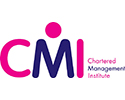
Chartered Management Institute
The MSc courses include the Leading Strategic Change through Creativity and Innovation module1. This module is accredited by the Chartered Management Institute (CMI). Students who successfully complete the module and meet the CMI learning outcomes will gain a Level 7 Certificate in Strategic Management and Leadership Practice. Further details can be found on the Professional Development module homepage.
Our Award-winning Green Superlab
With space for over 250 students and packed full of industry-standard equipment, the Coventry University Superlab is an amazing place to learn, experiment and discover. Find out what we’re doing in our Superlab to make it greener and reduce our waste and carbon emissions.
Antimicrobial resistance is a global health threat causing economic and social burdens in our communities. In this context, there is a global need for professional figures to tackle this issue.
Our new postgraduate courses in antimicrobial resistance aim to support potential students from different backgrounds, such as UK-domiciled and international graduates and mid-career health professionals who wish to extend and deepen their expertise in the antimicrobial resistance and infection control spheres.
I look forward to seeing you all on our campus and joining our fantastic community and course.
Dr Gaetano Del Gaudio - Course Director quoted in 2022
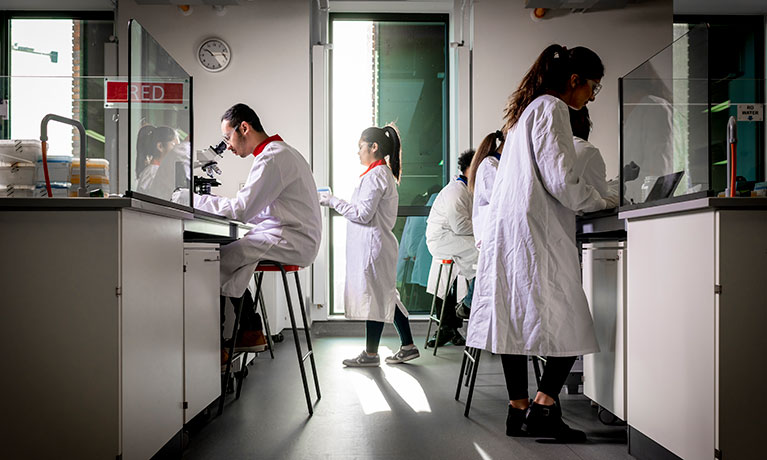
What you'll study
We regularly review our course content, to make it relevant and current for the benefit of our students. For these reasons, course modules may be updated.
How you'll learn
Teaching and learning will incorporate lectures, workshops, tutorials, presentations, and problem-based learning projects. Authentic assessments will provide you with the opportunity to demonstrate skills that have real-world application. Teaching and assessment will include innovative approaches such as the use of communication technologies and public awareness strategies to provide skills in influencing behaviour and change. You will also undertake group work simulating the real-life experience of people working in the AMR field, enhancing your employability.
Practical laboratory experience is a substantial component of the course, facilitated by our state-of-the-art laboratory equipped with high-specification equipment. You will develop your competence and independence in the laboratory, from initial taught sessions through to your own independent research investigation, guided by academic and technical staff. Teaching and learning is supported by digital platforms and alternative teaching methods which are research-led including lab meetings and presentations.
Teaching contact hours
As a full-time student, you can expect to have approximately 12 hours per week of contact teaching. In addition, you will be expected to engage with approximately 4 hours per week of directed study and approximately 12 hours per week of self-directed study, plus preparation of assignments.
The contact hours may be made up of a combination of face-to-face teaching, individual and group tutorials, and online classes and tutorials.
As an innovative and enterprising institution, the university may seek to utilise emerging technologies within the student experience. For all courses (whether on-campus, blended or distance learning), the university may deliver certain contact hours and assessments via online technologies and methods.
Since COVID-19, we have delivered our courses in a variety of forms, in line with public authority guidance, decisions, or orders and we will continue to adapt our delivery as appropriate. Whether on campus or online, our key priority is staff and student safety.
Assessment
This course will be assessed using a variety of methods including:
- Critical reflection
- Critical review
- Group work
- Laboratory competency
- Laboratory reports
- Media artifacts
- Oral pitch
- Portfolio-based assessments
- Presentations
- Project proposal
- Project report
- Public awareness campaign.
The Coventry University Group assessment strategy ensures that our courses are fairly assessed and allows monitoring of student progression towards achieving the intended learning outcomes.
Entry requirements
Fees and funding
2024/25 tuition fees
| Student | Full-time | Part-time |
|---|---|---|
| UK, Ireland*, Channel Islands or Isle of Man | £3733 (PGCert) | £11,200 (MSc) | £21,250 (MSc with prof. experience) per year | Not available |
| EU | £11,200 (MSc) | £21,250 (MSc with prof. experience) per year with EU Support Bursary** £6200(PGCert) | £18,600 (MSc) | £21,250 (MSc with prof. experience) per year without EU Support Bursary** |
Not available |
| International | £6200(PGCert) | £18,600 (MSc) | £21,250 (MSc with prof. experience) per year | Not available |
*Irish student fees
The rights of Irish residents to study in the UK are preserved under the Common Travel Area arrangement. If you are an Irish student and meet the residency criteria, you can study in England, pay the same level of tuition fees as English students and utilise the Tuition Fee Loan.
**EU Support Bursary
Following the UK's exit from the European Union, we are offering financial support to all eligible EU students who wish to study an undergraduate or a postgraduate degree with us full-time. This bursary will be used to offset the cost of your tuition fees to bring them in line with that of UK students. Students studying a degree with a foundation year with us are not eligible for the bursary.
Facilities
The course will be delivered at the Coventry University campus, predominantly in the Alison Gingell Building. Students opting to take the MSc Antimicrobial Resistance with Professional Experience will undertake a professional placement2, which may be in an industry-standard laboratory on campus or at an external organisation.
- The Alison Gingell Building contains a state-of-the-art SuperLab. The lab's facilities include equipment for traditional microbiological investigations, high-specification molecular biology and microscopy4.
Careers and opportunities
On successful completion of their course a student will be able to:
- Demonstrate a systematic understanding of a number of aspects of antimicrobials, antimicrobial resistance, infection prevention and control policies and procedures, and antimicrobial stewardship, and apply knowledge to problem-based scenarios, in a global context
- Demonstrate a critical awareness of key global pathogens that are driving the surge in antimicrobial-resistant illness around the world
- Critically analyse and synthesise scientific information in the subject area of antimicrobials and antimicrobial stewardship and articulate and communicate this effectively, through written, oral, and digital formats to influence behaviour and drive change amongst a diverse and global audience
- Work effectively within a team and demonstrate professional, organisational, conflict resolution, interpersonal, creative and leadership skills
- Demonstrate an independent approach to learning, reflect on their own practice and take responsibility for personal development.
In addition, a graduate of the Antimicrobial Resistance MSc or MSc with Professional Experience will be able to:
- Demonstrate a comprehensive knowledge of, and competently undertake laboratory work using, a wide range of conventional and molecular microbiology techniques, and analyse the resulting data appropriately
- Critically evaluate the principles of developing and proposing strategy for leading strategic change
- Devise, carry out and report an independent hypothesis-driven antimicrobials/ antimicrobial resistance-based research project, with due regard to health and safety and ethical requirements, and show originality in their application of knowledge to interpret these results.
In addition, a graduate of the Antimicrobial Resistance with Professional Experience MSc will be able to:
- Demonstrate the ability to contribute effectively into a work environment, exhibiting professional conduct and behaviours and reflect on the learning experience.
Coventry University is committed to preparing you for your future career and giving you a competitive edge in the graduate job market. The university’s Talent Team provide a wide range of support services to help you plan and prepare for your career.
Where our graduates work
On successful completion of these courses, you will have the relevant knowledge and skills to enable further focus and career progression within the field of AMR. It is anticipated that graduates of these courses will find employment in a wide range of careers, particularly related to AMR research and innovation in healthcare, industry and academia, antimicrobial stewardship, clinical infection prevention and control, government and international policy development, and as public influencers improving the sustainability of our antimicrobial use.
Further study
We have a range of PhD options available for graduates. These options change annually therefore relevant options will be made available during the course.
Graduate Immigration Route visa
Based on current information from the UK Government, international students whose study extends beyond summer 2021 may be eligible for a visa under the UK Government’s Graduate Immigration Route, which will enable students to stay and work, or look for work, in the UK at any skill level for up to two (2) years. Check the most up to date guidance available to check your eligibility and any updates from the UK Government before making an application or enrolment decision.
How to apply
You may also like
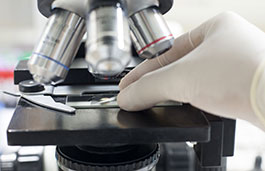
Biomedical Science MSc
